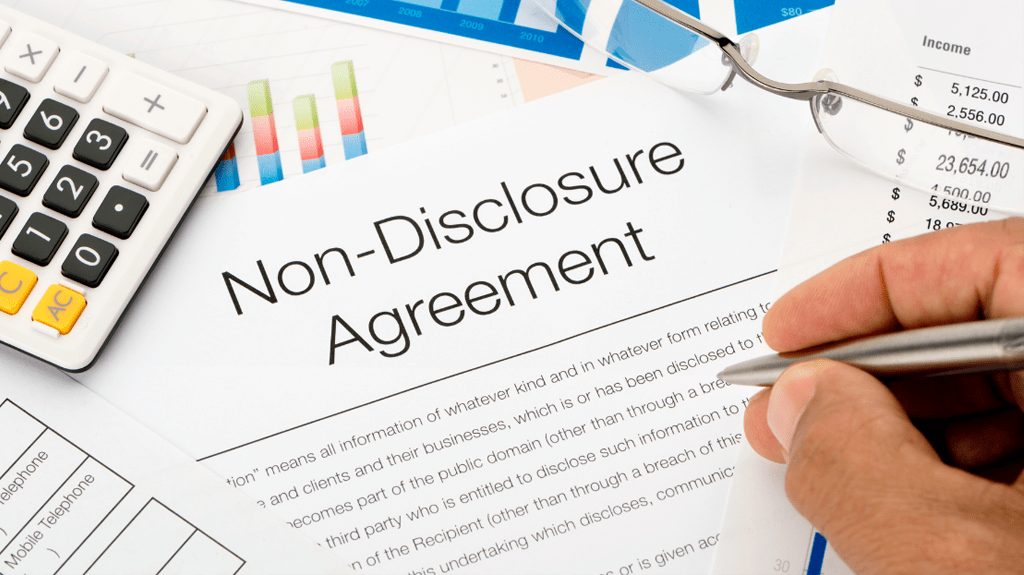
Top 8 Things to Watch Out for in Non-Disclosure Agreements
If you’re a business owner, then you know that protecting your ideas is essential–and when it comes to protecting your ideas, nothing beats a non-disclosure agreement (NDA). An NDA is a commonly-used legally binding contract between two parties that protects confidential information from being disclosed to a third party. NDAs are indispensable in ensuring privacy and security so long as you are aware of the threats they may pose–that’s where we come in. Here are the top eight things to watch out for before signing any non-disclosure agreement:
1 – What is the purpose of the NDA and is it sufficiently defined? The NDA’s goal should be explicitly stated, so all parties understand the rules surrounding the disclosed information. It should be made clear to both receiving and disclosing parties how the information may be used and the extent to which it will remain confidential.
2 – How is confidential information defined? There should be no ambiguity as to what is considered confidential information. Make sure that any information that ought to be considered confidential is designated as such–the safest way to ensure this is to opt for the extra administrative task of formally marking information as confidential.
3 – Are there any exceptions to what is defined as confidential information? Ensure you’re comfortable with any exceptions or carve-outs included in the agreement. This could consist of information later made known to the public, or information that the receiving party previously knows.
4 – Is the NDA unilateral or mutual? Recognizing your status as either the disclosing party, the receiving party or a party both disclosing and receiving the information will help inform your understanding of both parties’ agreement obligations.
5 – Who is the confidential information going to? Before you provide or receive confidential information, be clear on precisely who else–i.e., consultants, advisors, or other professionals–may have access to the information. It should be explicitly stated to whom the recipient of the confidential information may share it.
6 – Are there clauses not related to the disclosure of confidential information? Beware of non-solicitation clauses, indemnification clauses, ownership of intellectual property clauses, non-competes, or anything unrelated to information confidentiality that may have been snuck into the agreement.
7 – What is the duration of the NDA? How long do the confidentiality obligations of the agreement last, and do those obligations work for you? Bear in mind that the obligations will likely last longer than the agreement itself and may depend on how quickly the technology being disclosed changes.
8 – What happens at the end of our agreement? When the term of the NDA expires or terminates, the disclosing party often expects the confidential information to be returned or even destroyed. Make sure to specify your request or take note of the other party’s so that you understand the steps to take at the end of the agreement.
While non-disclosure agreements (NDAs) are commonly used in business dealings and are an excellent tool for protecting confidential information, they do not come without risk. Before signing an NDA, consult with an attorney and carefully review the agreement to protect your information from exposure–and to protect you and your company from costly legal battles down the road.
Related
Why Growing Companies Choose Fractional CISOs: An Interview with Stacey Robinson of GP Tech Advisors
In today’s digital landscape, growing companies face mounting pressure to demonstrate cybersecurity maturity. Whether it’s to win deals, attract investment, or pass audits, the need for robust security leadership is…
>>Forming a new business is a detailed undertaking–there is a lot to consider; a great many pieces to the puzzle. Some choices you make can be changed later with relative…
>>Artificial intelligence (“AI”) is everywhere, and it shows no signs of slowing down. Global investment in AI technologies continues to soar; in fact, funding for generative AI startups surged to…
>>Cybersecurity is no longer a luxury or “nice to have.” It’s a critical part of doing business even in the earliest stages. But for startups and small businesses, it can…
>>The fundraising landscape in 2025 is rapidly evolving, with shifting investor expectations, rising sector demand, and promising signals for both national and local startup ecosystems. Whether you are an entrepreneur…
>>You’ve chosen a state in which to incorporate, established a business structure, and now you’re busy selling your product or service to satisfied clients and customers. The business you’ve nurtured…
>>THE LATEST
Contact Us
Let's challenge the default together